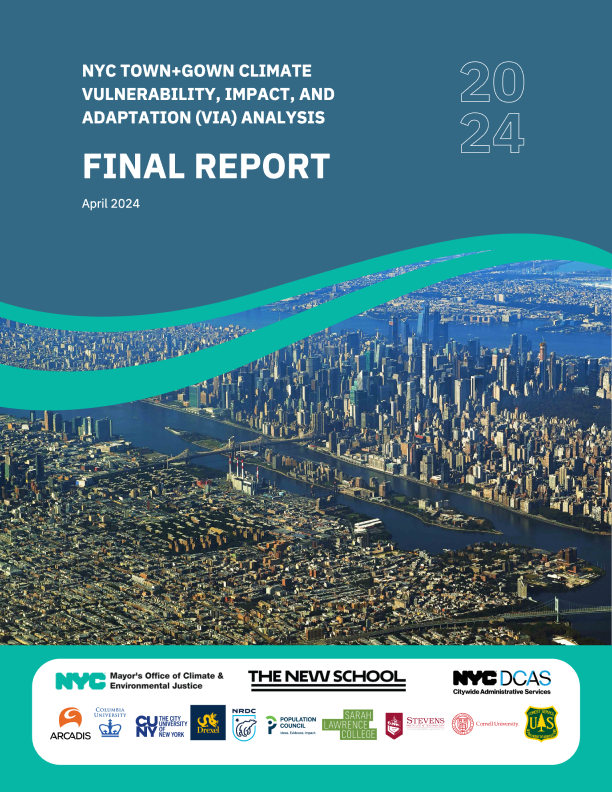A report developed by researchers at the Urban Systems Lab, Cornell University and others, in partnership with RISE and Universe City exploring strategies for adapting to multiple, compounding climate hazards in New York City.
Read MoreThis report evaluates a green infrastructure (GI) network to reduce combined sewer overflows, urban flooding, and climate risks in Southwest Yonkers. Using hydrologic modeling and ecosystem service prioritization, it proposes targeted GI solutions for a 52-acre sewershed along Riverdale Avenue.
Read MoreThe Saw Mill River Watershed Flood Vulnerability Modeling Project, led by the Saw Mill River Coalition and supported by the Urban Systems Lab, assesses climate-driven flood risks and provides tools for long-term land-use planning. The project supports equitable resilience by integrating flood modeling with habitat restoration, public access, and environmental justice goals.
Read MoreA report from the World Economic Forum's Global Commission on BiodiverCities to synthesize the latest research with practical solutions in the service of sustainable, inclusive and nature-positive urban development.
Read MoreA concise and accessible synthesis of IPCC Working Group I material for urban policymakers.
Read MoreThis report highlights a collaborative efforts with multiple NYC agencies to co-develop six transformative scenarios for New York City’s climate resilience and adaptation to extreme events by 2100.
Read MoreThis report assesses future climate change and its potential impacts, to inform decision-making by the City of New York.
Read MoreThe 4th assessment of the NYC Panel on Climate Change (NPCC4) provides insight into the state of the science on climate change and the implications for adaptation and mitigation policy in New York City.
Read More






